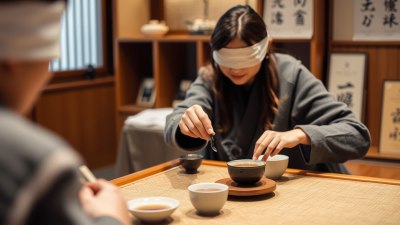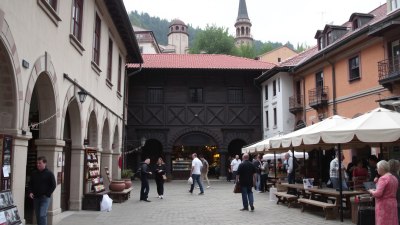Unique Easter Traditions from Different Countries
Explore diverse and unique Easter traditions celebrated around the world.

Easter is a significant religious holiday celebrated by millions worldwide, marking the resurrection of Jesus Christ. However, the customs associated with Easter vary widely from region to region, reflecting unique cultural values, beliefs, and traditions. In this article, we will explore some of the most unique and fascinating Easter traditions from different countries.
1. Greece: The Holy Flame
In Greece, an exceptional Easter tradition involves the 'Holy Flame,' also known as 'Holy Fire.' On Holy Saturday, a flame is said to be miraculously ignited in the Church of the Holy Sepulchre in Jerusalem, brought back to Greece by a designated emissary. This flame is then used to light candles in churches and homes across the country. At midnight on Saturday, a midnight service is celebrated, and the joyous proclamation of 'Christos Anesti' (Christ has risen) is shouted.
2. Poland: Święconka (Blessing of the Easter Basket)
In Poland, the tradition of Święconka, or Blessed Easter Basket, is of paramount importance. On Holy Saturday, families prepare a basket filled with symbolic foods such as bread, eggs, sausage, and salt. This basket is taken to church to be blessed by a priest. The blessed foods are then eaten during the Easter breakfast on Sunday, symbolizing the end of Lent and the joy of the resurrection.
3. Spain: Semana Santa (Holy Week)
Spain's Semana Santa, or Holy Week, is renowned for its extravagant and solemn processions. Cities such as Seville and Málaga host impressive parades featuring elaborate floats displaying religious icons, often accompanied by participants wearing traditional penitential garb. The processions are a significant cultural event, attracting thousands of visitors who come to witness the dramatic expressions of faith.
4. Italy: La Pasqua
In Italy, Easter, or La Pasqua, is a time for family gatherings and feasting. One of the distinctive elements is the 'Colomba di Pasqua,' a dove-shaped cake symbolizing peace. Families also enjoy a hearty meal featuring lamb, artichokes, and other traditional dishes. Additionally, various regions celebrate unique customs, such as the 'Scoppio del Carro' in Florence, where a cart filled with fireworks is ignited to ensure a good harvest.
5. Sweden: Easter Witches
In Sweden, children celebrate Easter by dressing up as 'Easter witches' and going door-to-door in search of candy, similar to Halloween traditions. They wear old clothes and headscarves, and some even paint their cheeks to resemble witches. This playful custom is accompanied by the belief that witches fly to Blåkulla, their mythical home, during Easter. In addition, Swedes also enjoy decorating their homes with brightly colored feathers and twigs.
6. Germany: Easter Eggs and Spring Festivals
In Germany, the tradition of decorating Easter eggs is taken to new heights. Many towns host festive markets where intricately painted eggs are showcased. One of the most famous is the Easter egg market in Munich, where thousands of hand-decorated eggs are displayed. Additionally, the Easter fountain is a unique custom where fountains are adorned with colorful eggs, signifying the arrival of spring.
7. Norway: Easter Crime
Norwegians have a quirky tradition called 'Easter crime,' where crime novels and thrillers dominate the literary scene during the Easter holiday. Many families enjoy reading mystery novels or watching crime-themed movies while on holiday. Publishers often release crime stories ahead of time, and newspapers may even run fictional mystery serials, making it a unique twist on the reclusive nature of the holiday.
8. Australia: Easter Bilby
In Australia, the Easter Bunny has been replaced by the Easter Bilby, an endangered native animal. This change promotes awareness of the bilby and its plight. Australians often incorporate bilby-themed chocolates and decorations into their Easter celebrations, highlighting a unique blend of cultural awareness and holiday festivity.
9. Ethiopia: Fasika
In Ethiopia, Easter is known as Fasika and involves a distinct approach to fasting and feasting. The Ethiopian Orthodox Church practices a strict fast leading up to Easter, during which followers abstain from animal products. Once Easter Sunday arrives, celebratory meals are enjoyed, often featuring a lamb dish called 'doro wat.' The holiday is marked by colorful church services and traditional Ethiopian coffee ceremonies.
10. Finland: Easter Cocks
In Finland, the arrival of spring is celebrated with the 'Easter Cock' tradition. Children dress as witches and go door-to-door, much like their Swedish counterparts, but they carry a decorated stick called 'the Easter stick' and wish families good luck. In return, they receive candy and treats from neighbors, reinforcing the spirit of community and festivity.
Easter traditions around the world showcase the rich tapestry of cultural beliefs and practices. From the Holy Flame in Greece to the Easter Bilby in Australia, each celebration reflects the unique identity of its people. These customs not only honor religious significance but also foster community spirit, family bonding, and cultural heritage. As Easter approaches each year, these traditions remind us of the shared values of hope, renewal, and joy that resonate across borders.











